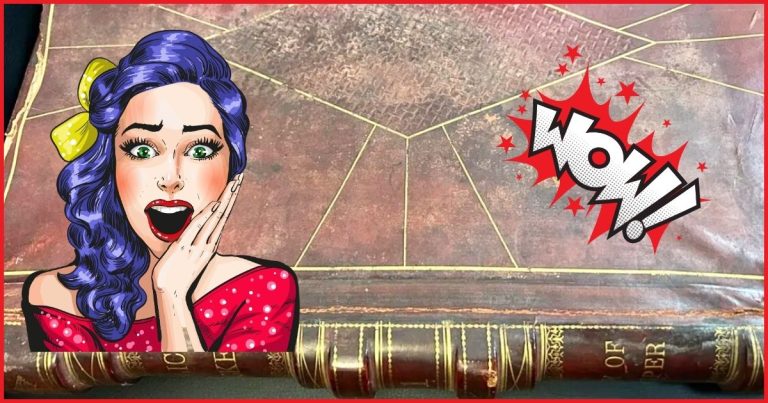
In the unpredictable world of thrift store donations, where dusty lamps and mismatched dishes often lie ignored, one Wyoming shop stumbled on a leather-bound surprise, and with it more than 120 years of local history.
The find? A 120-year-old police logbook brimming with tales of horseback mischief, rowdy saloons, and fines that would make even a seasoned outlaw blush. Staff at Casper’s Rescued Treasures Thrift Store were sorting through routine donations when a hefty red leather book caught their eye.
Bound in gold-stitched covers, its pages crackled with century-old secrets. “I have a love for old things and a good eye for antiques,” said Scauti Hillman, the store’s assistant manager, who first spotted the relic.
I knew right away it was priceless and an important part of Casper’s history.”

A detail from one of the pages inside a Casper Police docket dating back to 1904.
The book, it turned out, was a police docket from Casper’s early days—a meticulous record of crimes logged by officers in tidy cursive. From reckless horseback riding (which resulted in a $4 fine) to running a prostitution house (a $100 fine). the entries painted a vivid picture of a town where cowboys and chaos collided. “It was definitely amusing to read some of those descriptions of crimes back in the day,” Hillman said, laughing.
Brad Hopkins, executive director of the Wyoming Rescue Mission, marveled at the docket’s quirks. “Just some colorful history in there, and one thing that really stuck out was the reckless riding,” he said. “I don’t know if it was the ol’ cow pokes riding the horse up into the old wonder bar, or exactly what that was for, but pretty neat find.” Even the penmanship sparked admiration. “Whoever did that had amazingly neat handwriting,” Hopkins added. “It was so neat I found it hard to read.”
Casper Police Chief Keith McPheeters, who accepted the docket during a cheerful handover ceremony, noted the timeless nature of mischief. “When you open it up and you read it — drunk [and] disorderly, crimes of that nature — it’s the same thing that our officers are responding to today, so not much changes in the world,” he said. Still, the book offered a “snapshot of a period of time during a colorful part of Casper’s history.”

The discovered police ledger was given to officers. Photo from Wyoming News Now
Founded near pioneer trails and Pony Express routes, Casper began as a “rough-and-tumble town” where saloons lined the streets and lawmen wrangled rowdy cowboys. The docket’s pages echoed this spirit, with repeat offenders and oral incident reports — short speeches officers delivered to judges — hinting at countless untold stories. “It would be interesting to be a fly on the wall back then,” McPheeters mused.
Despite minor water damage and mold, the book’s preservation astonished historians. Its crisp pages and legible entries, now earmarked for restoration and display, will soon join other artifacts in the police department’s new station. “We will ensure that this record of our history is preserved with honor and dignity,” McPheeters said.
For Hillman, returning the docket was a career highlight. “Getting the opportunity to give it back to the community that it belongs to is just breathtaking,” she said.
As Casper evolved from a wild frontier outpost to Wyoming’s “Oil City,” the docket serves as a reminder that while horse-drawn mischief has traded for modern mayhem, some things — like the allure of a saloon brawl or a fine-worthy joyride — remain delightfully unchanged. After all, as Hopkins said, “Every item has a story.”
Sources: Smithsonian | Oil City News | Wyoming News Now


